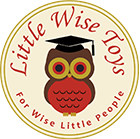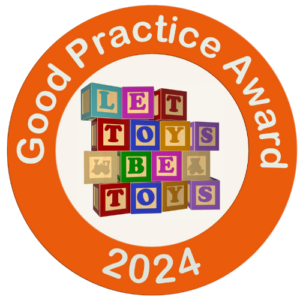While navigating friendships and social situations can be a fun experience for children and young people (C&YP), it can also be a challenging one at times. We can play a crucial role in supporting our children as they develop the skills and confidence to navigate these encounters effectively. One powerful tool that can help with this is the practice of reframing – the ability to shift perspectives and view situations in a more helpful and empowering light. There are many different areas explored in the Reframing Your Thoughts toolkits for 6-12 year olds and for teenagers that can help C&YP with approaching social situations, including with challenging peer interactions. This blog post explores some of these areas.
-
C&YP encounter a variety of social challenges, from making new friends to dealing with conflicts and rejection. These experiences can sometimes leave them feeling discouraged or insecure about their social skills. Acknowledging and validating their feelings, while also providing them with the tools they need to navigate these situations successfully can be invaluable. Just feeling heard can help to make such a difference.
-
The Reframing Your Thoughts toolkits introduce C&YP to a growth mindset. Applying this to friendships and social situations, we can help them to learn that social skills are like any other skill where they can improve with practice and effort. As part of this, we can emphasise that making mistakes along the way is absolutely normal and OK; and mistakes are actually an important part of the learning process. We can help them to see setbacks as opportunities for growth where they can nurture all sorts of skills, such as resilience.
-
Instead of focusing on the negative aspects of a social interaction, we can recognise and validate these, while also encouraging C&YP to identify a more positive perspective. For example, if a child feels nervous about approaching a group of peers, reframing the situation might involve highlighting the chance to make new friends or practice their communication skills.
-
We can help C&YP to identify, recognise and enhance their focus on their strengths and unique qualities that they bring to social interactions and friendships – such as loyalty, kindness and humour.
-
We can nurture empathy in C&YP and encourage them to consider the perspectives and feelings of others in social situations. By understanding that everyone experiences insecurities and challenges (even though some might be good at hiding this), C&YP can feel more connected and empathetic towards their peers.
-
Setting realistic expectations is also important. To help with this, we can remind C&YP that social interactions don’t always go perfectly, and that’s OK. We can encourage them to focus on enjoying the process of connecting with others rather than striving for perfection.
-
In challenging peer interactions such as in times of conflict and/or bullying, reframing can be very helpful. The reframing toolkits explore with C&YP how most problems have solutions. With this in mind, it can be helpful to encourage C&YP to approach these challenging situations with a problem-solving mindset, rather than feeling defeated. As the toolkits point out, while we might not be able to control others, we can control how we respond to situations and help to shape our experiences. We can encourage C&YP to consider alternative perspectives and brainstorm helpful ways to respond. For example, if someone says unkind things and/or is bullying another child, rather than thinking – ‘Why are they being mean to me/what’s wrong with me?’ – reframing the situation might involve recognising that the child who is being unkind might be doing this because they are struggling with their own insecurities. Whatever the reason, as the toolkits also highlight, it’s good to let C&YP know that bullying is never OK; they have every right to stand up for themselves (e.g. ‘The way you’re treating me isn’t right and I’d like you to stop’); and they never have to face situations alone if they are experiencing a hard time. There will always be someone that can help.
-
It’s also worth letting C&YP know that, sometimes, a friendship doesn’t work out how they had hoped as the friend often does things that don’t make them feel very good about themselves (e.g. by regularly leaving them out). And sometimes it’s a good idea to walk away from these situations and focus on forming new friendships.
-
One effective way to help C&YP practise reframing is through role-playing and scenario-based learning. Here you can create either hypothetical social situations, or use real life ones, and explore together different ways to approach them in helpful ways. This hands-on approach allows C&YP to build confidence and develop problem-solving skills in a supportive environment. Each card in the toolkits come with a question at the end that can help to spark conversations.
-
The reframing toolkits also emphasise the importance of focusing on progress and effort. As C&YP begin to apply reframing techniques in real-life social situations, celebrating their progress and effort along the way can play a really valuable role in nurturing their reframing mindset. For example, we can recognise their bravery in stepping outside of their comfort zone (no matter how big or small the steps might be) and commend them for their resilience in the face of challenges. Even if things don’t go to plan, giving it a go is already a huge achievement within itself.
-
Another really important and relevant area highlighted in the toolkits is letting C&YP know that ALL emotions and feelings are OK – including the more challenging ones. They are not things to suppress and are all part of what makes us human. It’s absolutely OK if things feel hard sometimes. The good thing is that most problems have solutions and all big feelings are temporary and pass in time – just like the clouds do in the sky.
Navigating peer interactions is such a big part of childhood development. By teaching them the power of reframing – the ability to shift perspectives and find helpful ways to view social encounters, including with challenging peer interactions – we can help to equip C&YP with invaluable tools. Through patience, encouragement, and lots of practice, we can help our children to navigate the complexities of social relationships and develop skills that they can continue to develop and use throughout their lifetime.







